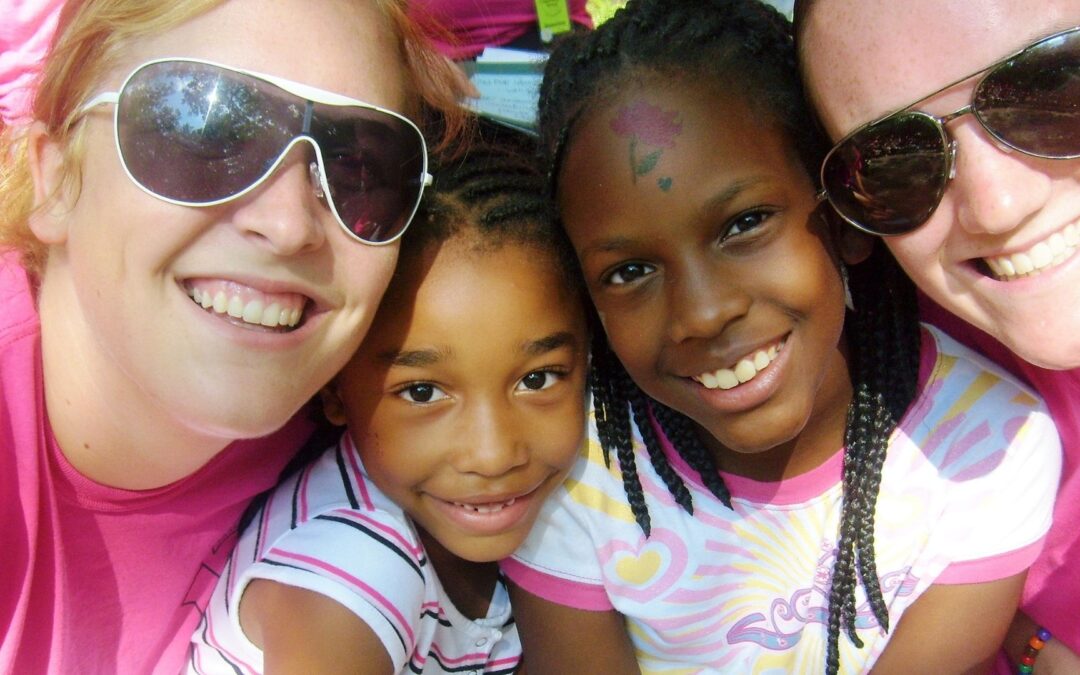In the US, 40% of our children live in low-income families at or below 200% of the federal poverty level. School can be a huge challenge for these young people. They are often walking into school already behind in their language and reading skills and are less likely to have support at home with schoolwork. Chances are good that they are dealing with social or emotional problems that interfere with learning. They are four times more likely to have chronic absences. These at-risk children are more likely to have sex before age 16, become involved in a gang or crime, resort to violence, steal something worth more than $50, or run away from home. Only 10% of these children will go on to graduate from college.
These statistics are heart breaking for our young people! And for our communities. What can we do to help support them and end this cycle? Young people who are surrounded by a variety of opportunities for positive encounters engage in less risky behavior and ultimately show evidence of higher rates of successful transitions into adulthood.
Relationships
All youth benefit from caring and stable relationships. At–risk youth need them even more! These young people need to establish a sense of trust. They need opportunities to communicate and share their frustrations and challenges as well as their successes. This sharing includes both in-school and out of school experiences. A young person will only be willing to confide in and take guidance or advice from an adult after there is a strong relationship. These young people crave those strong bonds.
Beyond School
Youth need to build relationships with adults beyond just a school setting. Of course, caring teachers, counselors, administrators, and coaches at school are important, but someone in a non-school setting may be better positioned to communicate more clearly the benefits and/or consequences of the choices a youth is making in school. They can help guide young people in the spirit of improvement. Caring adults outside the formal school system often have a better understanding of students’ lives outside of school and can help them find safe havens within the school day
Goals
Young people, especially those in at-risk situations, need assistance in setting appropriate goals. These young people often set unrealistic goals, or they may not realize their own potential. For example, a young person might take from the media that they could become rich and famous as a sports, music, or acting celebrity. They may not understand that this is not the norm. They may not be aware of whether it may be as attainable and desirable as the youth might believe. On the other hand, a young person may also be unaware of what options they may have available to them. They may believe they could never get secondary education from a college or technical school. Someone who knows a youth well and has built a strong relationship with them will be able to steer them toward goals that are realistic and appropriately challenging for them.
Pathways
Once a young person has set appropriate goals for their life, they will need support to get there. They need adult help to create realistic pathways, ideally with guardrails. It’s important that they know what those first small steps will be. Inevitably they will run into roadblocks and challenges along the way, and they will need guidance to get back on track. At-risk youth especially will need to know that “going off the path does not destroy the dream.” They need to know that it is still possible to turn the right direction. All too often these youth give up and end up down a dark path.
Community
Young people need a sense of belonging. We all do! In order for youth to be engaged in their community or group, they must have opportunities for success. They need to make positive contributions and receive recognition for them. Youth need opportunities for teamwork. Building this awareness and skills are part of every Jameson Camp summer camp program.
Extra-Curricular
Especially at-risk youth need engagement with extracurricular activities inside or outside of school. They can build positive relationships with peers as well as adults involved in groups, teams, clubs, or other organizations. Simple factors such as team names, logos, mottos, missions, or even t-shirts promote a sense of belonging.
It is up to us to support these at-risk youth to help them transition to becoming healthy and productive adult citizens. At Jameson Camp we want to help young people “get outside and grow inside.” Our staff has been impacting the lives of young people since 1928. Our program provides a high-quality program that will benefit at-risk youth.
Are you on Facebook? We are, too! Let’s be friends!

